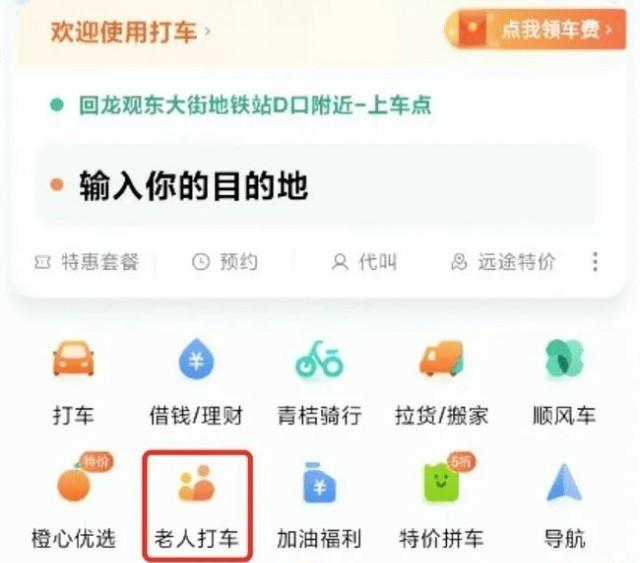According to the 48th Statistical Report on the Development of China's Internet Network, as of June 2021, 12.2% of China's 1.011 billion Netizens aged 60 and above have been accounted for, and the growth of Netizens has become increasingly significant from youth to minors and the elderly.
Starting from 2021, the relevant departments of the state have successively issued a number of policies to promote the aging of mobile apps, and mobile phone software covering all aspects of food, clothing, housing and transportation, such as shopping, chatting, taxis, and news, has developed an "old age version". But there are also many users who reflect that the aging transformation of some mobile apps is not very ideal, and the penetration rate is low, what is the specific situation?
A variety of apps for aging and barrier-free transformation
However, some software operations are relatively complicated
In order to protect the rights and interests of elderly users, in January 2021, the Ministry of Industry and Information Technology launched a one-year "Special Action on Ageing and Barrier-free Transformation of Internet Applications" to solve the difficulties encountered by the elderly, the disabled and other groups in using internet and other technologies.
At present, a variety of ageing and accessibility Apps have adopted large fonts, simplified symbols, and simplified functional areas, and the operation is relatively convenient. Taking a taxi software as an example, the staff told reporters that after the elderly open the software, they only need to press a button on the mobile phone to "call a car with one key". "After receiving the dispatch, the driver will come directly, and the destination can be filled in by the children, or the driver can help fill in, and the real-time monitoring situation in the car can be seen, which makes the children more assured."

However, in the process of interviewing, a number of elderly people also told reporters that although many apps have now been adapted to aging, for the elderly, the operation of some software is still relatively complicated, and there will be advertisements from time to time, and it is still difficult to learn.
An old man said that now the mobile phone to quit the App, to slide up and down, slide to nowhere, "My granddaughter gave me a short video App, sometimes after quitting, the sound is still there, but the picture does not know where to go." It's a bit difficult for us. ”
Offline services need to keep up
The lack of in-depth promotion is related to the low commercial value
In recent years, due to the frequent occurrence of telecommunications network fraud, some elderly people have resistance to the Internet. Feng Minhui, director of the Cooperation and Development Department of the China Youth Development Foundation, believes that bridging the digital divide is not enough to rely on scientific and technological transformation, and offline services also need to keep up.
"We set up a lot of links to simulate various payment scenarios, such as the use of electronic medical insurance cards in hospitals, and how to shop on the Internet for electronic payments, etc. We will teach them to use these scenarios." It is hoped that through the one-on-one teaching of blue vest volunteers, the elderly can adapt to digital life. ”
Song Yubo, associate professor of the School of Cyberspace Security of Southeast University, pointed out that in fact, the launch of a more convenient version of the elderly version of the website or software, from the technical point of view, is not difficult, the reason why the promotion is not common, not in-depth, and the commercial value of these elderly version of the software is not high.
The old version mainly has several aspects:
First, the interface should be concise, and now many apps are very complex and cumbersome, not for the convenience of operation, but to distract your attention and let you pay more attention to some corresponding advertisements or pushes.
Second, the font should be large, and now in order to cram too much information, the font is often very small.
Third, the logic of the operation should be simple, many operations will induce you to make multiple jumps, the elderly themselves are not the main customer group objects of the app now, so doing the elderly version is a public welfare behavior to some extent.
Expert: It's not just about technology
There is a greater need for humane and empathetic service
Liu Xingliang, a member of the Information and Communication Economy Expert Committee of the Ministry of Industry and Information Technology, said that according to previous surveys, although many apps have taken the first step in the transformation of aging, the transformation of many apps is still superficial.
"Just by enlarging the font, and more enlarging is the first-level page, the second-level page and the third-level page are not enlarged, just to cope with the policy or to cope with the social appeal, because the elderly are not the group they serve at the core." Real transformation should be done in response to the needs of the elderly. ”
Liu Xingliang pointed out that helping the elderly cross the digital divide requires two legs to run together, not only relying on technology, but more importantly, humane and empathetic services.
"Because the elderly may have problems with memory, some use will forget, etc., so we must do services offline, 'technology + service' is a very good means to solve the ageing, so our digitalization reflects the development height of a society, and the digital blankness reflects the temperature of a social development."
Source: Voice of China, Central Radio and Television Corporation